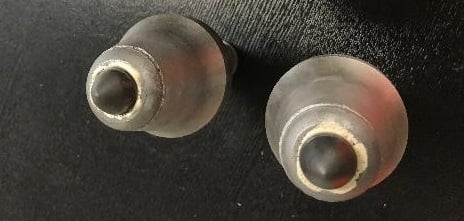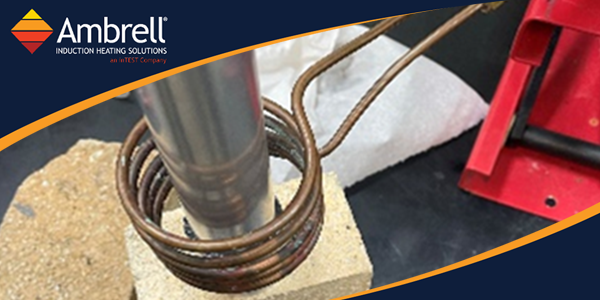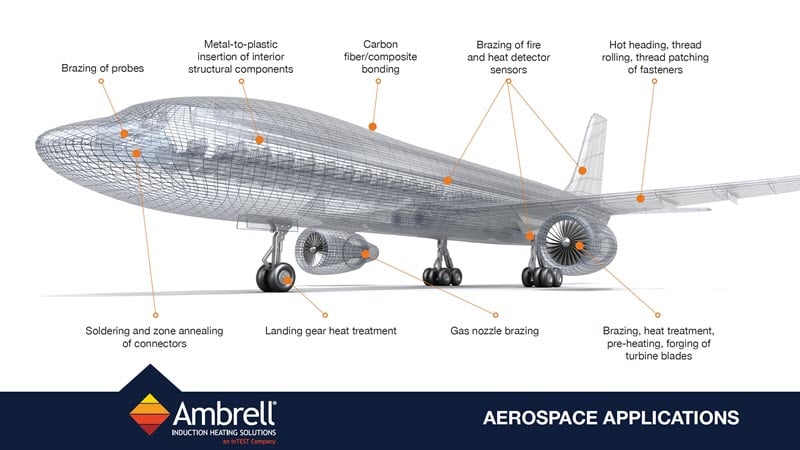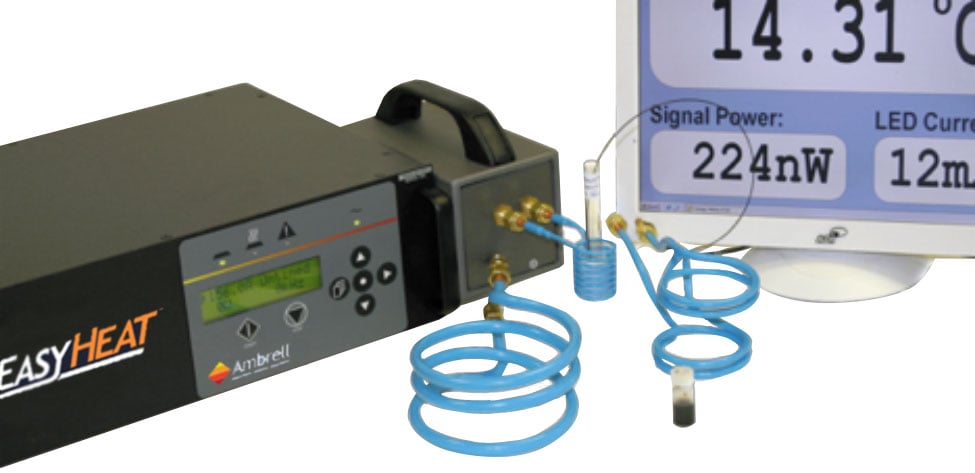Induction Brazing an Aluminum Assembly
Objective A company wanted to assess using induction heating for their aluminum assembly brazing process, and contacted THE LAB at Ambrell to utilize...
Applications
Applications: More
Applications: More

Industries:
Industries: More
Industries: More
Industries: More

Products:
Products: More
Services:
Services: More

Learn:
Learn: More
About:

1 min read
Brett Daly
2/20/18 9:25 AM

A company that manufactures PDC products for the oil, gas, mining and construction industries turned to THE LAB at Ambrell for their brazing application involving a steel and carbide assembly. They were using a torch to create mining bits and wanted to evaluate the feasibility of processing 100 parts per day with induction heating.
It was determined that an EASYHEATTM 6 kW, 150-400 kHz induction heating system would be the right system for this application. A custom-designed double position multi-turn helical coil was built to generate the required heat for the application. The part needed to be heated to 750 °C (1382 °F) and temperature indicating paint was applied to the part.
Testing determined that it took 90 seconds for the part to reach temperature, and once THE LAB found the optimal heating pattern, braze rings were formed with braze wire. Two rings were inserted into the bore and one ring was placed on the outside of the carbide tip. Heating was then conducted and the application's viability was proven.
Benefits of moving to induction from a torch include safety (no open flame) and repeatability. 

Objective A company wanted to assess using induction heating for their aluminum assembly brazing process, and contacted THE LAB at Ambrell to utilize...

Induction heating is a process that uses electromagnetic fields to heat electrically conductive materials. It has been used in numerous industries...

Induction heating, a process that uses electromagnetic induction to heat electrically conductive materials, is often thought of for large industrial...